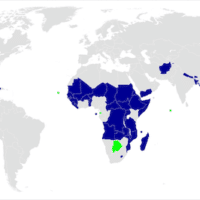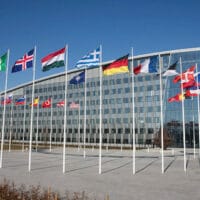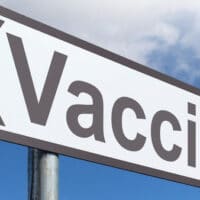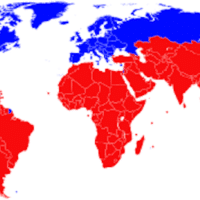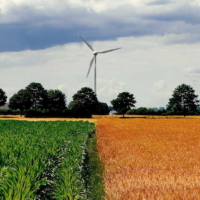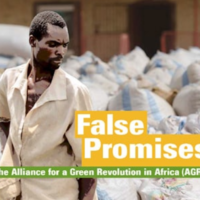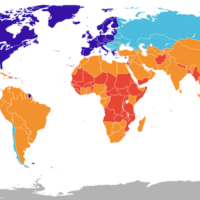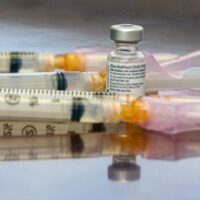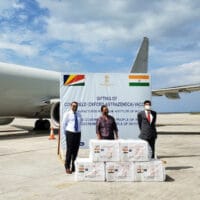-
Progressive taxation for our times
As developing countries struggle to cope with the pandemic, they risk being set back further by restrictive fiscal policies. These were imposed by rich countries who no longer practice them if they ever did. Instead, the global South urgently needs bold policies to ensure adequate relief, recovery and reform.
-
End vaccine apartheid
Vaccine costs have pushed many developing countries to the end of the COVID-19 vaccination queue, with most low-income ones not even lining up. Worse, less vaccinated poor nations cannot afford fiscal efforts to provide relief or stimulate recovery, let alone achieve Agenda 2030.
-
Allow least developed countries to develop
The pandemic is pushing back the world’s poorest countries with the least means to finance economic recovery and contagion containment efforts. Without international solidarity, economic gaps will grow again as COVID-19 threatens humanity for years to come.
-
Privatised health services worsen pandemic
Decades of public health cuts have quietly taken a huge human toll, now even more pronounced with the pandemic. Austerity programmes, by the International Monetary Fund (IMF) and World Bank, have forced countries to cut public spending, including health provisioning.
-
Beware UN Food Systems Summit trojan horse
In the last dozen years after the 2008 world food price spike, the UN Committee on World Food Security (CFS) has become an inclusive forum for civil society and corporate interests to debate how best to advance food security. Unsurprisingly, CFS has long addressed food systems.
-
European duplicity undermines anti-pandemic efforts
Despite facing the world’s worst pandemic of the last century, rich countries in the World Trade Organization (WTO) have blocked efforts to enable more affordable access to the means to fight the pandemic.
-
Rich country hypocrisy exposed by vaccine inequities
World Health Organization Director-General notes, “The global failure to share vaccines equitably is fuelling a two-track pandemic that is now taking its toll on some of the world’s poorest and most vulnerable people.”
-
Powerful states push tax race to the bottom
Last week, the largest rich countries, home to most major transnational corporations (TNCs), agreed to a global minimum corporate income tax (GMCIT) rate. But the low rate proposed and other features will deprive developing countries of their just due yet again.
-
Paltry international support for spending needs sets South further back
SYDNEY and KUALA LUMPUR. With the pandemic setting back past, modest and uneven progress, huge disparities in containing COVID-19 and financing government efforts are widening the North-South gap and other inequalities once again.
-
Developing countries desperately need COVID-19 financing
International cooperation must ensure significantly more official foreign exchange financing to supplement innovative domestic financing for urgently needed spending for relief, recovery and reform.
-
Struggle for the future of food
With so much at stake, representatives of food producers and consumers need to act urgently to prevent governments from allowing a UN sanctioned corporate takeover of global governance of food systems.
-
Another false start in Africa sold with green revolution myths
AGRA was started, with funding from the Bill and Melinda Gates Foundation and the Rockefeller Foundation, to double yields and incomes for 30 million smallholder farm households while halving food insecurity by 2020.
-
IMF, World Bank must support developing countries’ recovery
The COVID-19 pandemic continues to take an unprecedented human and economic toll, wiping away years of modest and uneven progress towards the Sustainable Development Goals (SDGs).
-
Prioritise pandemic relief, recovery: No time for debt buybacks
Developing country governments are being wrongly advised to use their modest fiscal resources to pay down accumulated debt instead of strengthening pandemic relief and recovery. Thus, debt phobia risks deepening and extending COVID-19 recessions by prioritizing buybacks.
-
Developing Countries struggling to cope with COVID-19
SYDNEY and KUALA LUMPUR: The ongoing COVID-19 pandemic is adversely impacting most developing countries disproportionately, especially the United Nations’ least developed countries (LDCs) and the World Bank’s low-income countries (LICs).
-
IP, vaccine imperialism cause death and suffering, delay recovery
Vaccine developers’ refusal to share publicly funded vaccine research findings is stalling broader, affordable vaccinations which would more rapidly contain COVID-19 contagion. The pandemic had infected at least 109 million people worldwide, causing over 2.4 million deaths as of mid-February.
-
Intellectual property cause of death, genocide
Refusal to temporarily suspend several World Trade Organization (WTO) intellectual property (IP) provisions to enable much faster and broader progress in addressing the COVID-19 pandemic should be grounds for International Criminal Court prosecution for genocide.
-
Caught in tangled web of vaccine nationalism
As known COVID-19 infections exceed 100 million internationally, with more than two million lives lost, rich countries are now quarrelling publicly over access to limited vaccine supplies. With ‘vaccine nationalism’ widespread, multilateral arrangements have not been able to address current challenges well.



